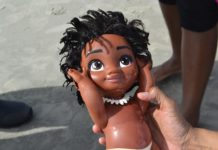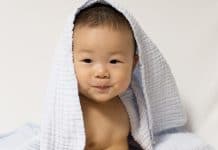I am fourth generation multicultural. On my father’s side of the family there is a long history of people marrying outside of their tribe. Africa is so often referred to as “Africa” that the rich diversity of tribes and cultures within it can be overlooked. Tribes can be as different in their language, culture and customs as an English person can be from a Hungarian.
Although there was a lot of inter-marriage, tribe is inherited through one’s father so I consider myself Luo despite having a Samia-Luhya mother and Kisii great-grandmother. To give you some idea of the differences: the Luo are an egalitarian people. Historically both men and women could become chiefs. There was a democratic political structure and even the initiation into adulthood was the same for both men and women (this involved removal of six bottom front teeth). This initiation rite evolved because as a nomadic people tetanus (lockjaw) was rife and although Luos had a cure for tetanus they did not have a preventative. In adulthood this meant certain death unless the cure could be passed through the gap in the teeth.
Samia-Luyha’s have a strictly hierarchical social structure complete with royal families. This is also reflected in the initiation into adulthood which is different for men and women. For men this involves circumcision. One can see how inter-marriage could raise a lot of issues for discussion. Not all issues are historical as circumcision remains common even today. However, many city dwelling Samia-Luhyas prefer to have their sons circumcised in a hospital and then return to their village for the celebrations.
Even though they are both Kenyan, my parents actually met and married where they had completed their higher education: London, England. It was no surprise that my daughter’s father turned out to be English (I too studied in the U.K.). It wasn’t until I wrote this piece that I realized it makes my daughter fifth generation multi-cultural. She is growing up trilingual with English, Kiswahili and Maragoli (her nanny’s language). She also speaks a smattering of French.
We enjoy taking the best of all of the different cultural heritages that we have as part of our unique history. However, it was important to me that she spent her early years in Kenya surrounded by her extended family. There is a regularly quoted African expression, “It takes a village to raise a child.” What is less often quoted is the second half of that expression, which I think in the early years is just as pertinent, “and a community to keep the parents sane.”



































Hello! Thank you for your great posts, I realized we are very African in the way we raise our children. It is hard in our society to raise children this way, they just don’t understand. Just today i was told by a fellow artist why i would not attend a Gala that is at night and he replied ” well i need to tell the media a VALID excuse why you will not be there!” It’s not VALID enough to be doing the most important thing in the world raising children! Weird society sometimes… but i am sure it will get better the more we parents show them this wonderful way of being! I had a question for you if possible… I was wondering what African cultures do when co-sleeping when i child typically falls asleep around 7-8pm and we tend to fall asleep around 10pm. My children keep waking up because we are no longer beside them co-sleeping, we join them once we are done our routine parent catching up and cuddling together ;). Also, my eldest who is 2.5 years old doesn’t like sharing the bedroom, he wants to sleep with us on the same bed, is there any gentle way of easing him to his little bed on the floor beside our bed? Thank you so much! 🙂
[…] jobs (that of being a mother as well as paid employment). I find it hard to fathom because I am a fourth generation working […]
[…] I tell people that I am a vegetarian they assume it must be for medical reasons. Why else would an African woman who can afford to eat meat blankly refuse what so many of her compatriots don’t have the luxury […]